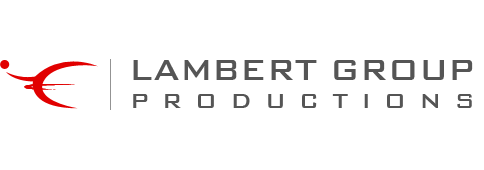
05 May What Technologies WordPress Developers Should Use
Currently, WordPress is the most popular CMS with more than 35 million active users. You can use it to create a blog, online store, corporate website, and more. Users love WordPress because it is easy to install, there are a wide variety of plugins available, and, above all, it is user-friendly. Developers love WordPress because of its intuitive functionality, and it’s elementary to maintain.
The number of sites using WordPress is growing, which creates a significant number of WordPress developers. But how do you know if you have enough knowledge to apply for this position? Or maybe you are already a WordPress developer, but you want to upgrade your skills?
In this guide, we’ll take a look at the core five WP technologies that you absolutely must understand to be a successful WordPress developer.
Web Browsers
Web developers do a lot more than just browsing online. It is for this reason that the average WP developer needs a browser capable of many different things. For example, the one that comes with plugins allowing you to view your competitors’ code of sites.
Alternatively, you can search for a browser that gives you the ability to see how some projects will look on different screens. The good examples of web browsers for devs are the following:
- Firefox Developer Edition. Among developers, Firefox is highly used. With Firefox Developer Edition, you have access to the next generation CSS engine (written in RUST), an inactive CSS system that highlights CSS ads that don’t affect the page, and more. With your new browser, you can access the best-in-class JavaScript debugger, Master CSS Grid, and more. It also helps developers create and design their own CSS grid. These tools make it easy to visualize information, display region names, and preview transformations.
- Google Chrome for developers. Built for the open web, Google Chrome for Developers helps professionals design websites specifically optimized for the next version of the digital world. With Google Chrome, you can test advanced web platform APIs in real-time. What’s more, Google Chrome is packed with endless tools and add-ons that you can embed in your browser. The list includes PHP consoles for WordPress, screenshot tools for collecting inspiring web designs, and even LastPass for password management.
Being able to explore the web browser toolkit and capabilities, it’s critical knowledge for WP developers.
Protocols
You have probably heard the terms ICMP, TCP, UDP more than once.
For development in WordPress, it’s essential to understand the core principles of these protocols and network infrastructure elements:
- The HTTP (hypertext transfer protocol) application protocol is at the heart of all websites. HTTP makes it possible to request necessary resources from a remote system, such as web pages and files.
- FTP (file transfer protocol) is used to transfer data. It functions at the application level, ensuring the transfer of a file from one computer to another. FTP is rightfully considered insecure and should not be used to transfer personal data.
- TCP (Transmission control protocol) is one of the main network protocols. It manages the transfer of data. There are situations when information may arrive in the wrong order or even get lost somewhere. But TCP ensures that the delivery order is correct and can fix packet transmission errors
- IP addresses are unique to each device and enable computers to identify each other on the network. IP belongs to the network layer of the TCP / IP model. Voice over Internet Protocol (VoIP) is built on it.
Knowing the principles of protocols’ functionality is also a big plus for ensuring WordPress security.
Markups (Schema)
When search engines crawl your website’s content, they try to put it all in context. For example, if your homepage is titled “website building,” the search engine may well assume that this is what your site is about. But everything is not always so obvious. Without knowing this type of information for sure, your website has a lot to lose when it comes to search relevance.
This is where markups come in handy. Schema adds a behind-the-scenes vocabulary to the website’s content. Adding this markup to specific parts of the website will provide search engines with a higher level of context.
This context can ensure that when your website is listed on SERP, it does so with more relevance. For example, using markup, you can explicitly tell search robots that there is a product on some page and tell there the basic parameters: name, price, manufacturer, etc. Based on this data, search engines form extended snippets in search results.
To provide outstanding performance of your recently launched blog or website, make sure to know schema and use it properly.
Frameworks & Programming Languages
Frameworks are a set of tools and libraries that allow you to improve the product development cycle and save time on performing some routine tasks. A framework gives a developer the opportunity to focus on specific tasks of the current project, using the ready-made functionality.
As a result, we get a system that can simplify the life of WP devs. This is achieved due to the wide capabilities of the system, already existing APIs, or WP plugins, the number of which is simply enormous. But, of course, sometimes you won’t be able to use ready-made solutions. That’s why a WP developer has to utilize coding skills.
A typical WordPress site uses four languages, experience in which is required for WP developers:
- PHP is a server-side programming language. The WordPress code itself is written in PHP, as well as themes and plugins. PHP is the heart of WordPress, its engine.
- JavaScript is a programming language that runs in the browser and adds interactivity to the site, for example, beautiful feedback forms or menus.
- HTML is a markup language that explains to the browser what is on every page of your site.
- CSS is a layout language that tells how each element on a page should look like.
In addition, knowing programming languages, you will be capable of web app building.
Advanced: APIs & Databases
The basic API is needed for connecting different pieces of software. API is something similar to computer ports connecting various devices. Only it connects not devices but apps. It allows you to exchange data and make a smooth cross-platform integration.
A database is all the information that is on the website, collected in one place. That is, all articles, pages, plugin data, widget data are stored in the database as separate tables.
The server where the database is stored and where the database management software (DBMS) is installed is called MySQL. There are other database servers, but usually hosting companies install this particular database management software.
Based on the above: does the website developer need to be able to set up APIs and manage SQL? The answer to this question is simple: don’t repeat other people’s mistakes and take the time to learn the basics of MySQL and practice with APIs configuration.
Conclusion
Hopefully, this article has helped to structure your knowledge on the most important technologies that are needed to be a professional WordPress developer. Knowing these technologies, you will be able to create a high-quality website and adjust it to any needs.
About Author

Dmytro Zaichenko is a Marketing Specialist at Railsware, a product studio helping people build great products. He has more than 6 years of experience in content making. Apart from writing and networking, he’s passionate about basketball, music, and poetry.

Sorry, the comment form is closed at this time.